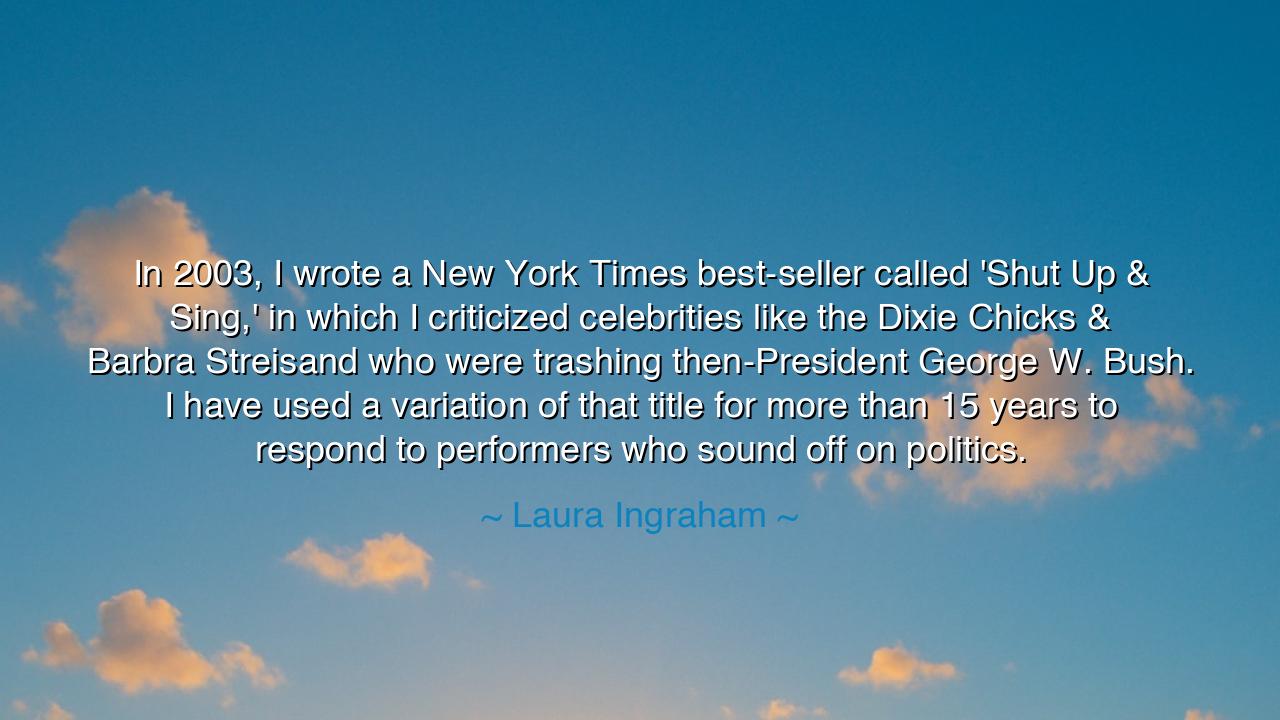
In 2003, I wrote a New York Times best-seller called 'Shut Up &
In 2003, I wrote a New York Times best-seller called 'Shut Up & Sing,' in which I criticized celebrities like the Dixie Chicks & Barbra Streisand who were trashing then-President George W. Bush. I have used a variation of that title for more than 15 years to respond to performers who sound off on politics.






"In 2003, I wrote a New York Times best-seller called Shut Up & Sing, in which I criticized celebrities like the Dixie Chicks and Barbra Streisand who were trashing then-President George W. Bush. I have used a variation of that title for more than 15 years to respond to performers who sound off on politics." Thus spoke Laura Ingraham, revealing the tension between art and power, between the stage and the state. Her words expose an old struggle: should the singer remain with song, or is it the right of every voice to speak truth, even against rulers?
The ancients faced this same quarrel. In Athens, Aristophanes mocked generals and politicians through his comedies, weaving satire into laughter. Some called it insolence; others called it truth. In Rome, the poets who criticized emperors often paid with their lives. The question has always endured: when the performer speaks beyond their art, do they betray their calling, or fulfill a higher duty?
Consider the tale of the Dixie Chicks, who in the heat of war declared their shame in the leadership of their homeland. Their words sparked fury; radio stations banned their songs, and crowds burned their albums. Yet in time, history softened the judgment, and many came to see their boldness as an act of conscience. Here lies the paradox: to some, they had overstepped; to others, they had stood tall in the arena of politics.
So too in the days of Barbra Streisand, her voice not only graced theaters but pierced debates. Admirers saw courage in her willingness to merge art with conviction; detractors, like Ingraham, saw distraction, a turning of the singer’s gift into a weapon. The struggle between art and politics has never been quiet, for the stage commands the ear of the people, and the words spoken from it echo far beyond melody.
Therefore, let this lesson endure: the union of performance and politics will ever stir conflict. Some will cry for silence, insisting the artist remain bound to their craft; others will praise the boldness of speech that risks popularity for principle. The wise must discern that truth is often carried on unexpected lips. For whether one agrees or disagrees, the fact remains: the stage is a pulpit, and those who stand upon it wield a power greater than applause—the power to stir the soul of a nation.






AAdministratorAdministrator
Welcome, honored guests. Please leave a comment, we will respond soon